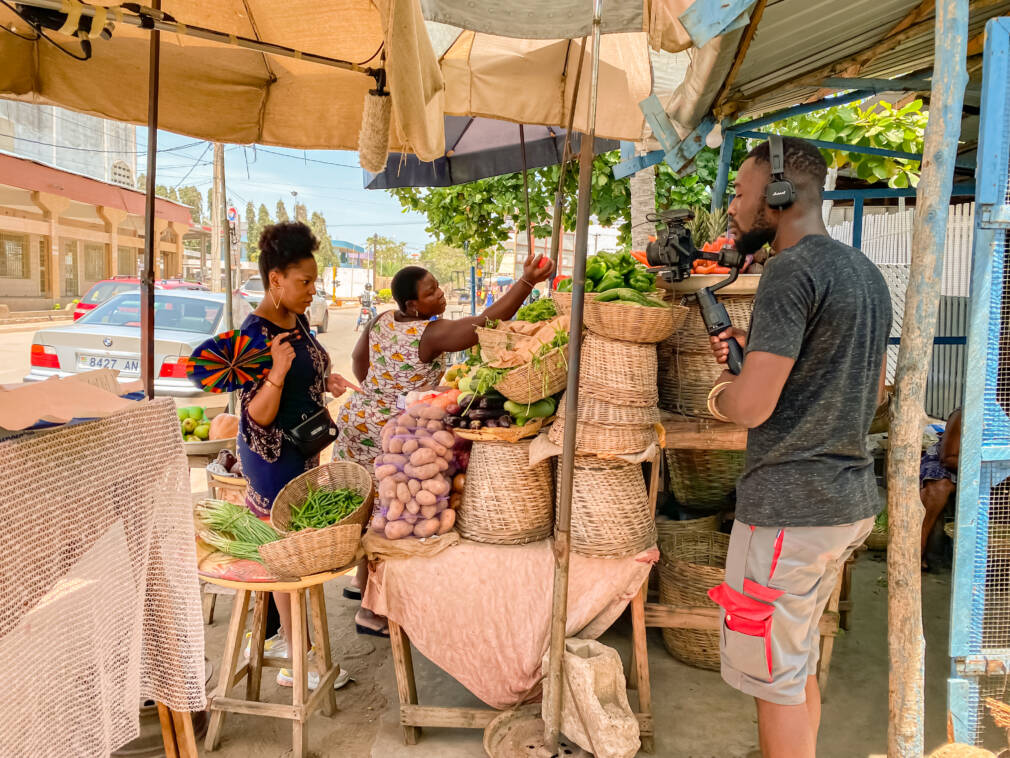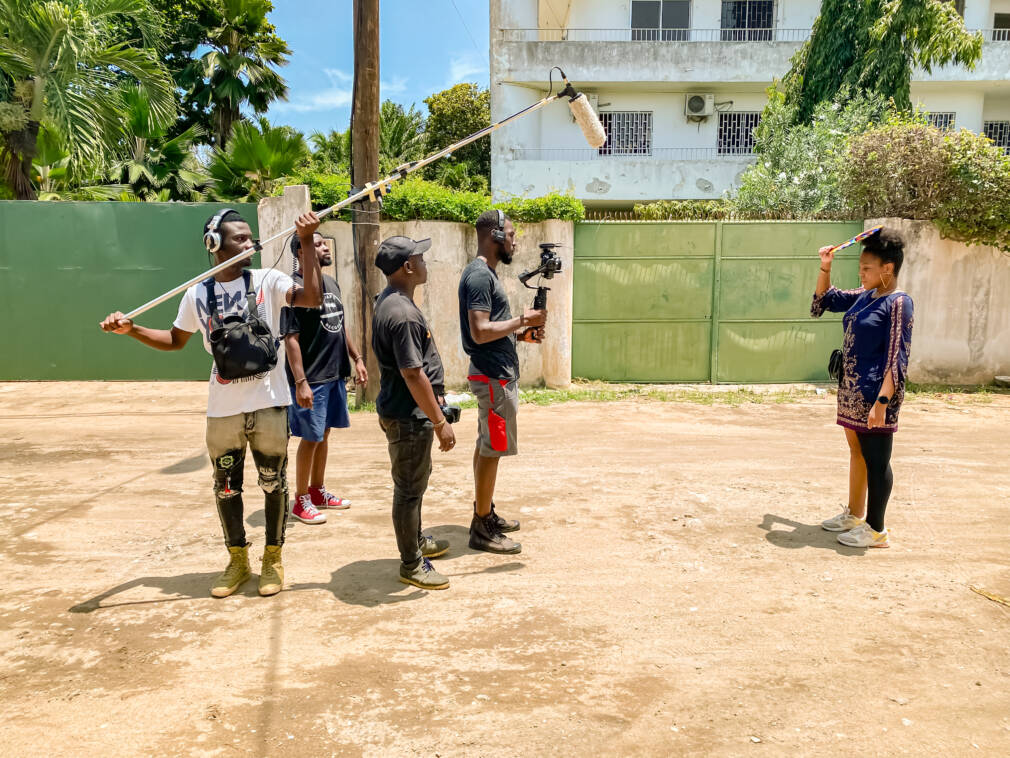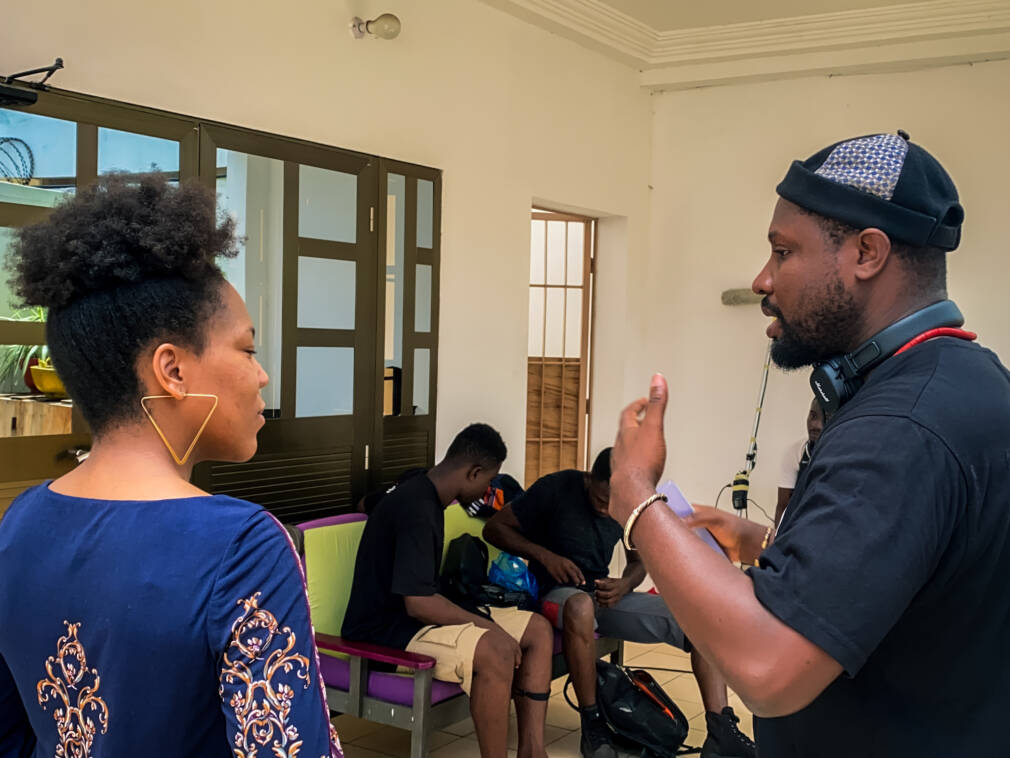PAM presents: Noire Velours, at home in Lomé
The 4th film in the Off the Map series takes us to Lomé, following the footsteps of Noire Velours, a young singer who reclaims her differences and works to free herself from the challenges society’s silence perpetuates. A documentary directed by Elom 20ce, who is here to elaborate the story.
One leg black, the other clear. Black in France, “white” in Togo. Christelle Houefa Anoumou, aka Noire Velours, is used to this duality. Better still, she embodies this contradiction and draws her life force from it. This is the story that Elom 20ce, rapper, filmmaker and “artivist”, whom PAM has often mentioned, immerses us into. That of a young woman who succeeded in taming her illness and disregarding the negative gaze of others in order to fully embrace herself.
It wasn’t until she was a teenager that she discovered she had lymphedema, a medical condition that causes swelling in certain limbs. To contain it, the young artist made a habit of wrapping a black support fabric around one of her legs, something which became a distinctive sign, a mark of her personality. This bred resilience, but there was also a battle to resist assumptions, including those linked to the color of her skin in a society where everything seems to perpetuate them. Music serves as an outlet for this experience, for her ideas, and for her voice, which is imbued with soul, jazz and Rnb. Noire Velours says: “The voice, it reminds me of power… Because you can convey who you are, the philosophy and values you have, the ideas you want to implant in people’s heads. You can convey them through your voice. Anyway, it’s the voice that gets the message across.” It was her voice, her unique profile and her vision of society that made Elom 20ce interested in the young artist.

Why did you choose to follow Noire Velours, what interested you about her?
Her story is interesting because she is someone who lives between two worlds. She lives in Africa, she makes western music, and a lot of her references are still in Europe (where she grew up). She is between the two. She also stands out from the Togolese music scene. She sings in English in a French-speaking country. And above all, there is her resilience: she transcended a rare disease and, where others would have been discouraged, and would never have dreamed of being singers, she did it. I knew her from her song “Black is Beautiful”: seen from here she is “white” because she has light skin, and she said to herself “but why should I have privileges because I am less dark? there are plenty of women who are beautiful around me“. Noire Velours does not deny her western side, but tries to value things from here. Today she makes quite daring music. I don’t like everything, but in the Togolese context, where there is a lot of modesty, she sings “I would like to be done like that“… She owns her difference and tells us that in that difference we can find complementarity.
This is one of the questions raised in the film: in Africa, being proud of your skin color when you are black is often complicated…
In Lomé, the billboards tell you everywhere that you must have light skin. They don’t tell you that they are bleaching products, but they say that it is to have “beautiful” skin. We are still in societies where we think that what comes from elsewhere is better, and that is the lack of self-love. It is not only the depigmentation of the skin, it is also the depigmentation of the brain. Noire Velours, she learns to love herself this way and to carry herself this way. Who taught you to hate yourself? It is always current, and it is a big problem in Africa: the lack of love of Africans towards themselves and for their land.

In the film, she also says that Togolese people are frustrated and suffer, but they keep everything inside. She brings out what ails her, and that’s why she uses music as a form of therapy. What do you think of her statement?
“We give up on ourselves” When you take a country like Togo, the last 30 years have been painful and bloody… When you go abroad and come back to Lomé there is a kind of sadness, we killed the dream. In a society where people don’t dream anymore, it’s important to show someone who takes their handicap and says “I’ll do my thing”. Then those who are healthy ask themselves some questions. It’s a lesson! The doors may be closed but there is a way, and it comes from people you didn’t expect. In Togo, it is probably not the opposition or the ECOWAS that will change things, but the simple people who carry the more complicated stories of our societies.
We will not focus on the people who give up, but on those people who defy the statistics every day! My work is a work for us to love each other again. Let’s stop crying, despite the difficult situation. There are simple people, often invisible, but who carry this society in a very beautiful way. In spite of our handicaps, they regain the love of ourselves and who, in this hard society, survive the system every day. They do not know the word “resilience”, but they carry the sun every day. These are the ones I want to show.
Elom 20ce will be in concert the 5/11 at l’Institut Français of Lomé.
His next EP, Yéyé, will be out 16/12.
